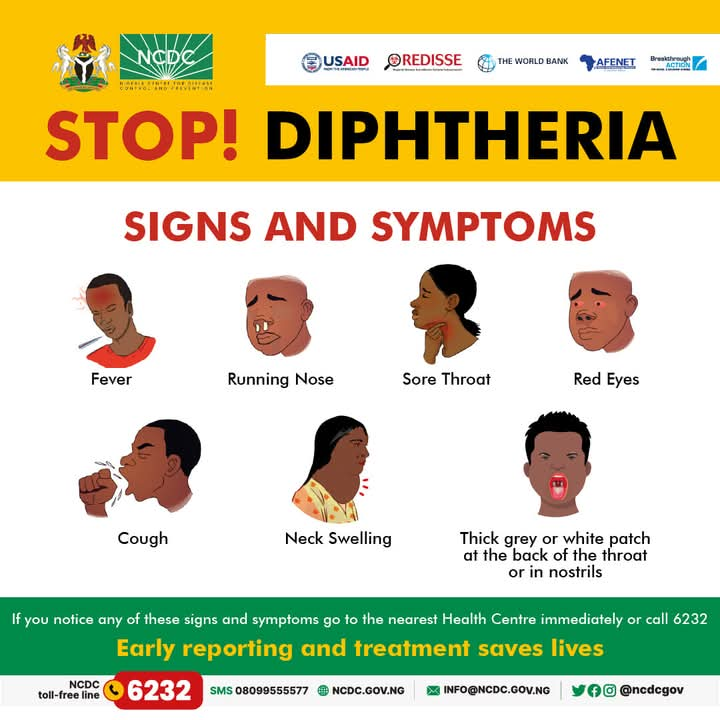Pressure is mounting on Nigeria’s public health system, as health authorities battle an expanding wave of diphtheria outbreaks in several states, compounded by inadequate access to antitoxins—vital for neutralizing the deadly bacterial toxin.
Experts warn that without urgent intervention to boost antitoxin supply, the outbreak could spiral out of control. “This is not just a medical issue, it is a national emergency,” one health official told this newspaper. “We are running out of time.”
Complicating the situation further are reports from Imo State, where authorities have closed all nursery, primary, and secondary schools in the Mbutu community of Aboh Mbaise Local Government Area. Local council chairman Mr. Iheukwumere Alaribe confirmed the closure, citing the death of several children within a single week from suspected diphtheria infections.
At least three persons have died from complications linked to diphtheria at the University of Benin Teaching Hospital (UBTH), Ugbowo, Edo State, amid growing concerns over a nationwide shortage of lifesaving antitoxins.
Hospital sources confirmed on Tuesday that the victims, whose identities remain undisclosed, presented with advanced symptoms of the highly infectious disease and died shortly after admission.
A coordinated emergency response involving the World Health Organization (WHO), the Imo State Ministry of Health, and local health officials has led to the establishment of an isolation centre at the Mbutu Health Centre. Health personnel have been deployed to manage suspected cases and enforce quarantine protocols.
Diphtheria, caused by the Corynebacterium diphtheriae bacterium, spreads through respiratory droplets or direct contact with infected individuals. If left untreated, it can result in severe respiratory complications, heart failure, paralysis, and death.
Nigeria continues to face major challenges in combating the disease—including low routine immunization coverage, delayed case confirmation, and insufficient healthcare infrastructure.
While vaccination remains the most effective preventive measure, health workers say the shortage of diphtheria antitoxin represents a critical gap in Nigeria’s outbreak response. Public health advocates are urging the federal government and international partners to act swiftly to secure and distribute adequate medical supplies.
As of March 2025, the Nigeria Centre for Disease Control and Prevention (NCDC) reported 1,319 diphtheria-related deaths from 25,812 confirmed cases since the beginning of the outbreak in 2022—representing a case fatality rate (CFR) of 5.1%, or approximately one in every 20 confirmed cases.
With fatalities rising and key treatment options in short supply, public health officials warn that without decisive and immediate intervention, Nigeria could face one of its worst diphtheria outbreaks in decades.
